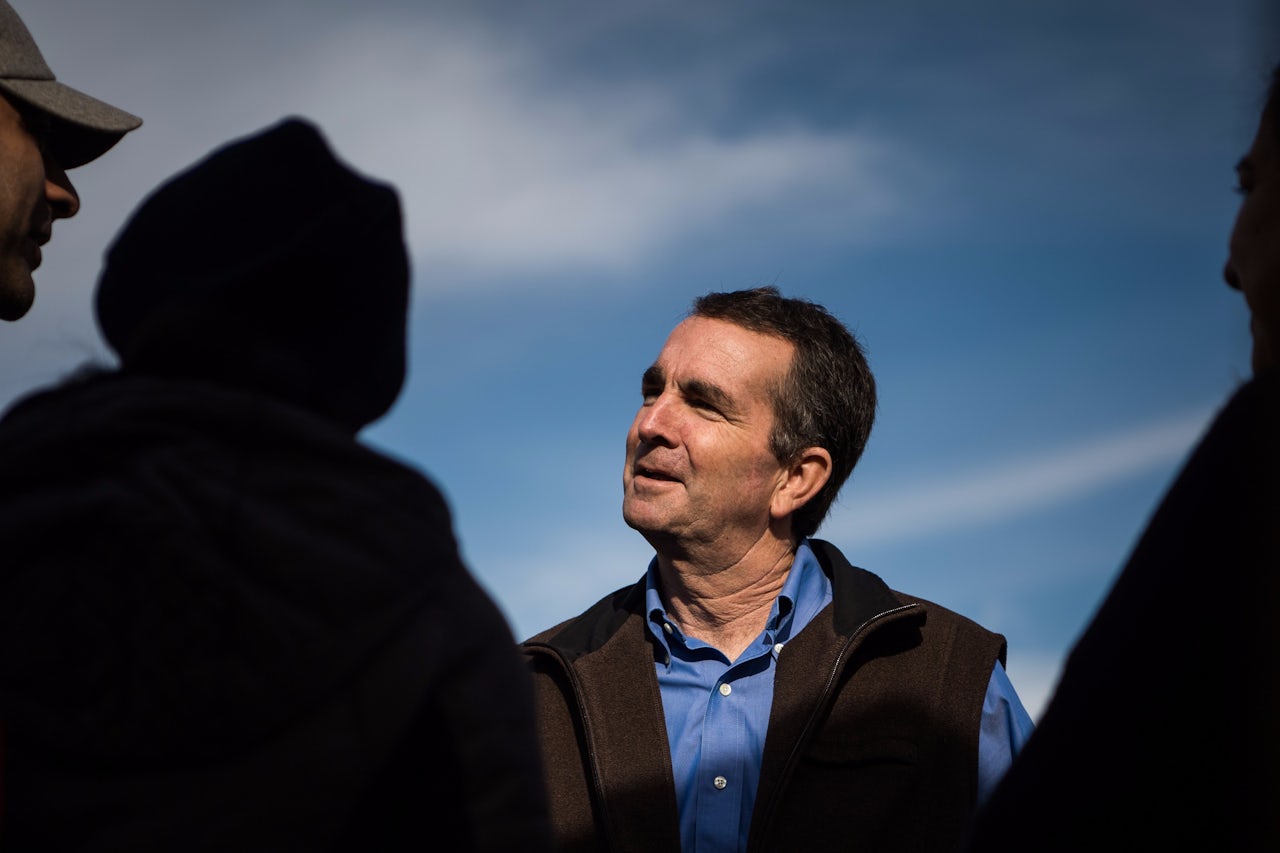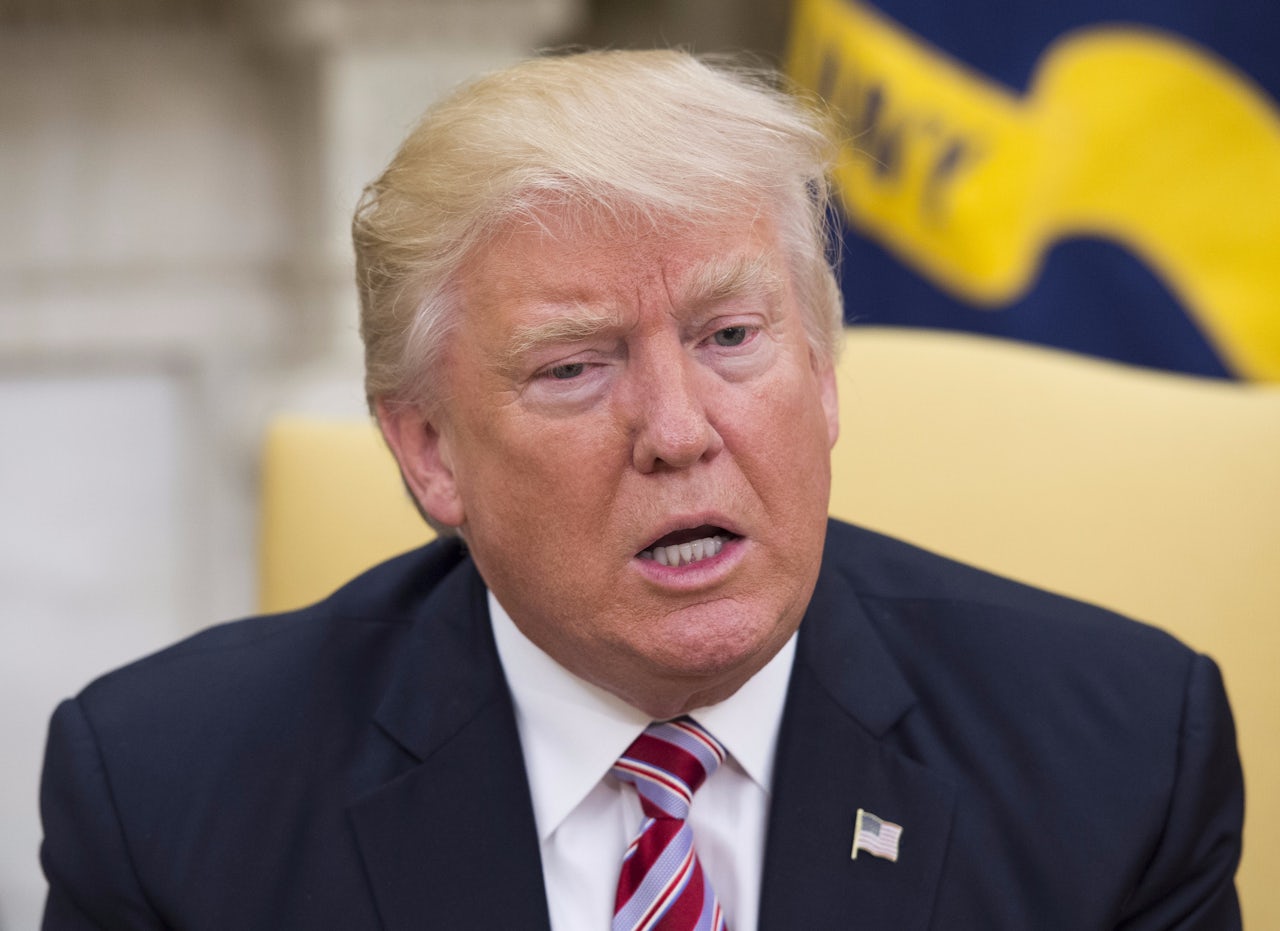I do not expect Ralph Northam, the Democratic candidate in the Virginia governor’s race, to lose today but if he does, I’ll be taking a close look at rental properties in Montreal. Civil society might not instantly unravel in the case of a Northam loss, but such an outcome would compel a reevaluation of the health of the republic.
Donald Trump has accomplished little in his first year as president. His major legislative initiatives have stalled. His approval ratings are stuck in the thirties. As of yet, there’s no wall, no block-granting of Medicaid, and no massive tax cut for Trump and his billionaire cabinet. Even his efforts to personally enrich himself by looting the treasury have been met with middling success: according to Forbes, Trump’s net worth has actually decreased since taking office, notwithstanding a boffo debut for the new Trump International Hotel in Washington. Although America is undoubtedly a nastier, more soulless place than it was a year ago, true Trumpification has not yet occurred.
This is largely because national politics remain in a holding pattern since Trump’s fluke electoral-college victory. To the extent that Trump’s agenda is floundering on Capitol Hill, that’s due in part to the fact that legislators on Capitol Hill, looking at presidential approval numbers, expect voters to punish Trump for his pseudo-authoritarian antics: you might say that an anti-Trump backlash has already been priced in, just as the recent stock market rally has been fueled in part by the expectation of a giant tax cut. If the tax bill fails, though, stocks could slide. By the same token, if the Trump backlash fails to materialize — if it doesn’t push Northam over the finish line in Virginia and, more crucially, if it doesn’t deliver the Republicans a shellacking in the 2018 midterms — American politics will begin to change rapidly. The dawn of the Trump era, which has so far felt like a farce, might one day be remembered as the calm before the storm.
True Trumpification has not yet occurred.
Although reporters like to recite the axiom that a new administration has a narrow window in its first 100 days to enact sweeping change, some of the most transformative presidents needed a successful midterm before they managed to push through the most controversial parts of their agendas. When Franklin Delano Roosevelt came into office in 1933 with huge majorities, for example, he immediately pursued changes to the banking system. But the truly revolutionary reforms of the New Deal — the passage of Social Security, the signing of the National Labor Relations Act, the establishment of the Works Progress Administration — didn’t happen until after the 1934 midterms, when Roosevelt stunned observers by expanding his Congressional majorities and ousting conservative opponents up and down the line.
It was 1934 that convinced everyone that 1932 had been real — that the FDR coalition wasn’t a blip, certain to fade after a (widely predicted) midterm rebuke, but a realignment. A similar argument could be made about Lyndon Johnson, whose marquee legislative accomplishments, including Medicare, the Voting Rights Act, and the War on Poverty, came in his presidency’s third year in 1965. (In some ways, Johnson's blowout victory over Barry Goldwater in 1964 resembled a midterm, as Johnson had already been in office for some time following JFK’s assassination).
As for Trump, today’s elections will provide us with the first major piece of feedback from voters. Did the American people actually intend to install this moron in the White House? Or did they regret their move almost instantly, turning against not only Trump the person but also against his hard-right nationalist agenda? Signals so far have been mixed: On the one hand, Trump is the most unpopular president since modern polling began during the Truman administration; on the other hand, he’s largely kept his base in his corner, his opponents aren’t polling much better, and he’s having reasonable success purging establishment rivals like Tennessee Sen. Bob Corker and Arizona Sen. Jeff Flake.
Some commentators have cautioned that the Virginia governor’s race, which always comes one year before the midterm, is an unreliable proxy for national mood. At FiveThirtyEight, Harry Enten notes that the result in the Virginia governor’s race (relative to the state’s partisan lean) has diverged from the following year’s midterm results by an average of seven points in the last six elections — a wide spread. Local politics often diverge from national politics, and governor’s races can hinge on issues that have little to do with the agenda pursued by the White House.
Divergence from the national debate, though, emphatically does not describe what’s been going on in Virginia, where Trump — and, to a lesser degree, Hillary Clinton — has cast a dark shadow over the proceedings. Ed Gillespie, the Republican candidate, has run an unmistakably Trumpian campaign, flooding the airwaves with advertisements effectively accusing Northam of rolling out a red carpet for murderous immigrant gangs and of conspiring to besmirch southern heritage and white identity by removing confederate statues. While Gillespie has opted not to appear in public with Trump the man, he has worked hard to make the election a referendum on Trumpism as a political ideology.
Did the American people actually intend to install this moron in the White House? We will soon find out.
Last week, Amy Walter, writing for the Cook Political Report, cautioned that “a disastrous 2018 and a damaging report [from Mueller] could recalibrate Trump’s currently solid hold on his party.” The reverse, though, is probably even more true: Because many people in Washington are working under the assumption that voters will turn against Trump, an unusually strong midterm could radically strengthen his hand. Cleansed of the odor of fluke and failure, Trump would be empowered to accomplish all the things he’s failed to achieve so far: the border wall, trade barriers, mass deportations (including of DREAMers), budgetary havoc, and evisceration of the health care system. A good result for Trump in the Virginia governor’s race is unlikely to have that kind of near-term impact, but could it give Trump the confidence to fire Robert Mueller and issue blanket pardons in the Russia investigation? We might get an answer a very soon.
Today’s election may or may not end up accurately predicting next year’s midterms, but it will have an immediate effect on politicians’ behaviors. A victory for Gillespie will probably silence Trump’s critics on Capitol Hill — at least until the next scandal erupts.The consequences could be equally significant on the Democratic side. The wounds from the primary campaign between Hillary Clinton and Bernie Sanders have yet to heal; in some ways, the conflict between the party’s left-wing base and the party’s business-friendly establishment is as bitter as it’s ever been. Until now, establishment types have carried the day in the most important proxy fights, successfully installing former Labor Secretary Tom Perez as Democratic National Committee Chair and pushing Northam, their preferred candidate for the Virginia race, to a primary victory over former Virginia Rep. Tom Perriello, who had the backing of the Sanders coalition. Although the party’s power brokers survived the catastrophic loss of their presidential standard-bearer in 2016, the rank-and-file may prove unwilling to tolerate another surprise defeat.
Through all the chaos of the last 12 months, neither party has formed a coherent response to the Trump era. That’s partly because no one is sure yet whether the Trump era is for real. We’ll know much more after the votes are tallied on Tuesday.

